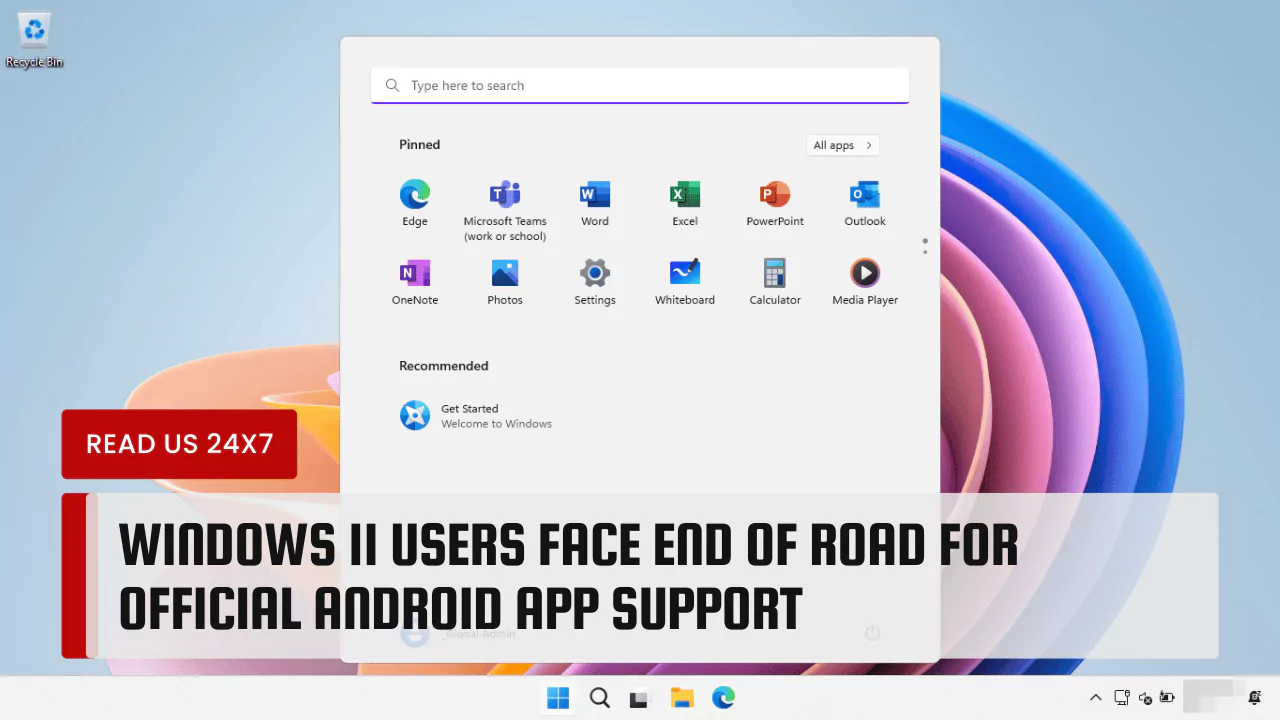With Microsoft’s recent announcement, Windows 11 users are confronted with the looming end of official support for Android apps on their operating system. This decision marks a significant shift in the landscape of app compatibility and integration for Windows users.
What This Means for Windows 11 Users
The cessation of official Android app support on Windows 11 entails several critical implications. Firstly, users will no longer have access to the vast array of Android applications that they have become accustomed to running on their Windows devices. This move effectively cuts off access to the Amazon Appstore, thereby restricting users from installing and using Android apps on their Windows 11 systems.
This decision impacts a wide spectrum of Windows 11 users, ranging from casual consumers to business professionals who rely on Android apps for various tasks and functionalities. For many users, the ability to seamlessly integrate Android apps into their Windows environment has been a convenient feature, enhancing productivity and expanding the capabilities of their devices.
Reasons for Microsoft’s Decision
Microsoft’s decision to terminate official support for Android apps on Windows 11 stems from several underlying factors. Firstly, the initiative to integrate Android apps into the Windows ecosystem was initially conceived as an experimental endeavor. While the concept held promise, its execution faced numerous challenges and limitations.
Despite initial optimism, the Windows Subsystem for Android (WSA) failed to gain significant traction among users. Its inability to access the Google Play Store, coupled with a relatively limited selection of apps on the Amazon App Store, hindered its widespread adoption. As a result, Microsoft’s strategic focus gradually shifted towards other priorities, such as enhancing the Windows Store experience and advancing generative AI technologies within the Windows environment.
Alternatives for Android App Integration
Although Microsoft’s decision marks the end of official support for Android apps on Windows 11, users still have access to alternative solutions for integrating Android applications into their computing environment. One such option is the utilization of third-party platforms like the Amazon Appstore and BlueStacks emulator.
The Amazon Appstore, despite its limitations, continues to offer a selection of Android apps that users can access and install on their Windows 11 devices. Additionally, platforms like BlueStacks provide users with the ability to emulate an Android environment on their Windows systems, enabling them to run a wide range of Android applications seamlessly.
In addition to these options, users may explore alternative methods and technologies for integrating Android apps into their Windows workflow. While Microsoft’s decision represents the end of an era for official support, it also signals the beginning of new opportunities and innovations in the realm of app compatibility and integration.
In conclusion, the termination of official support for Android apps on Windows 11 marks a significant development in the evolution of the Windows ecosystem. While this decision may pose challenges for some users, it also paves the way for new avenues of exploration and innovation in the realm of app integration and compatibility. As users adapt to these changes, the landscape of computing continues to evolve, driven by advancements in technology and user preferences.


